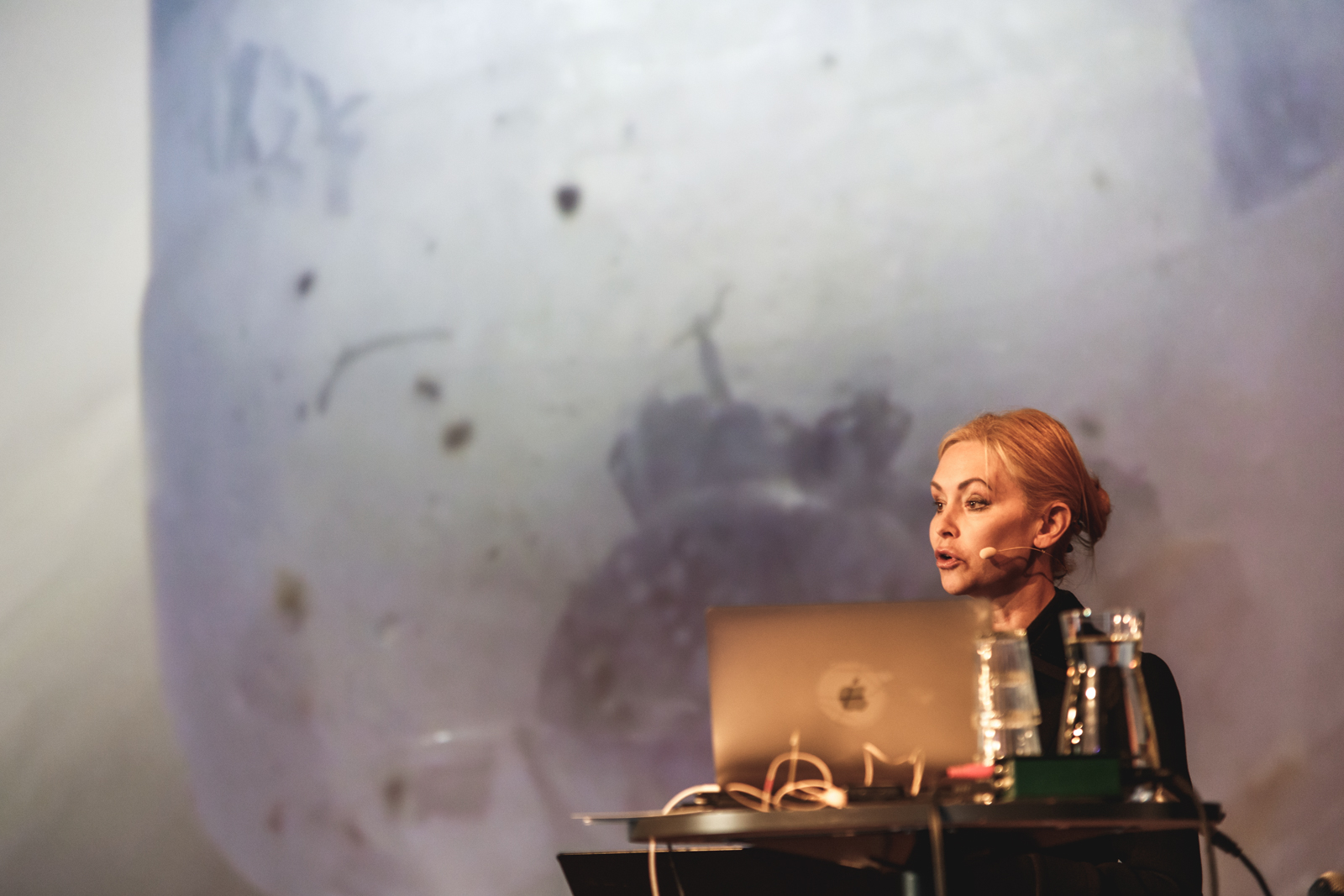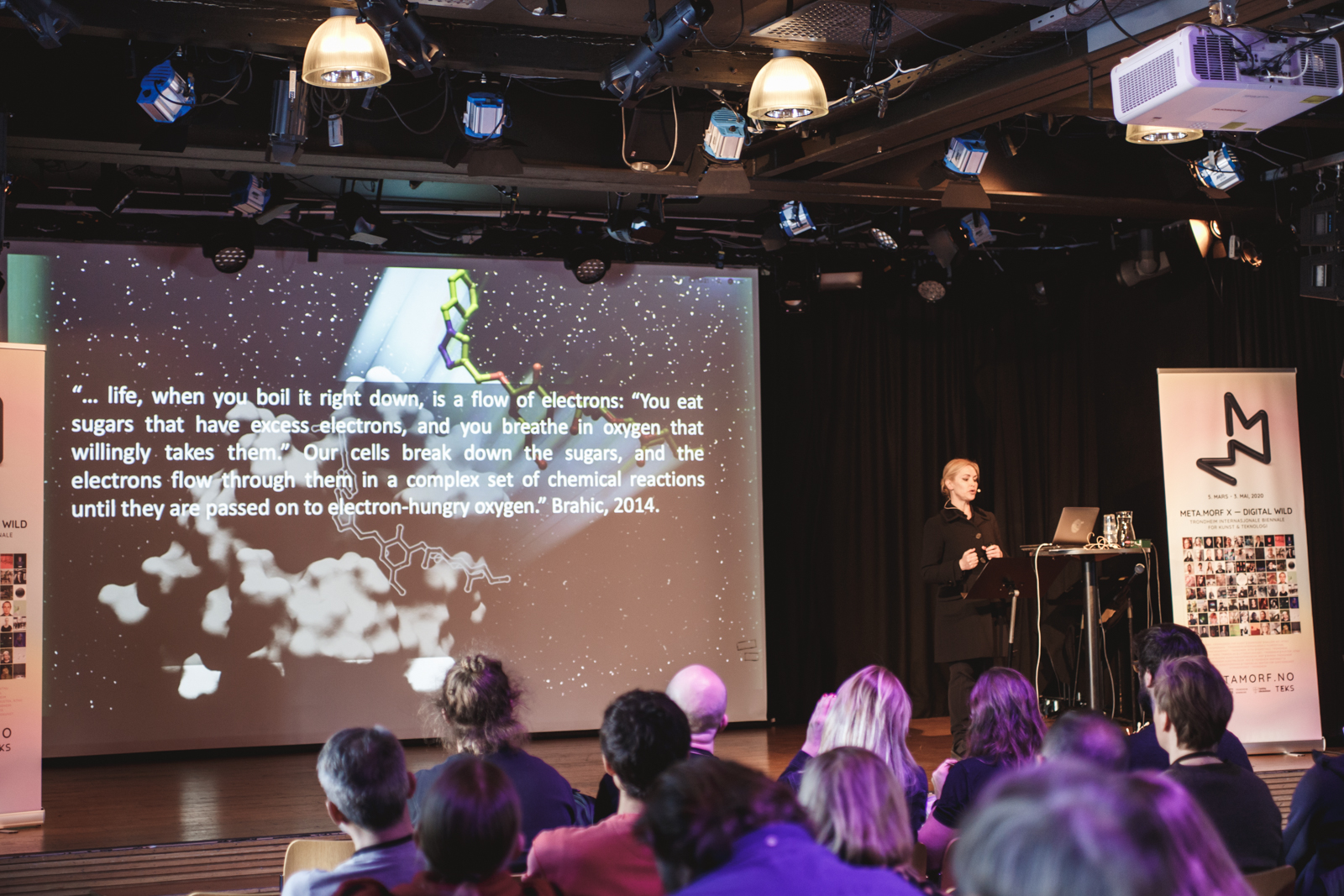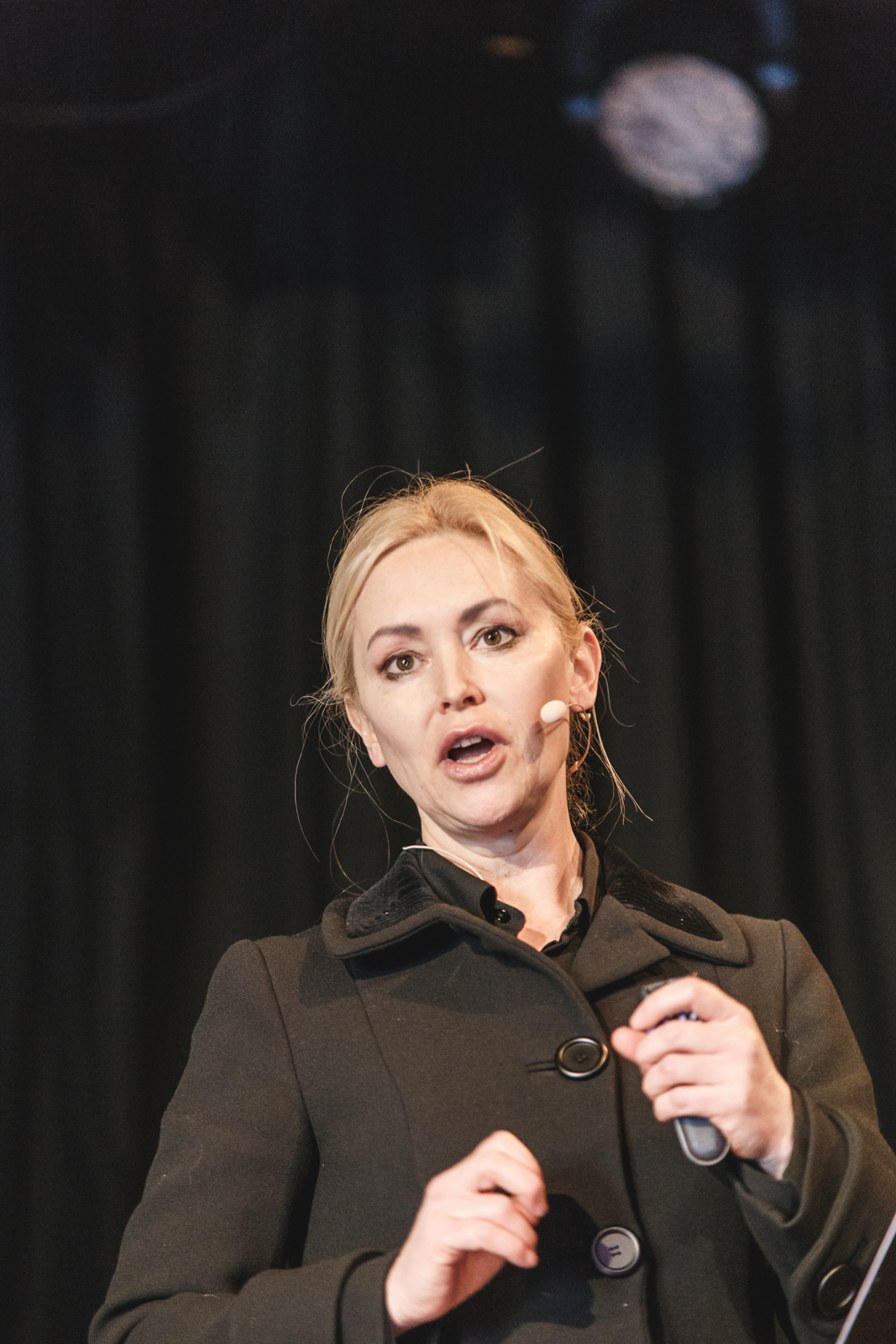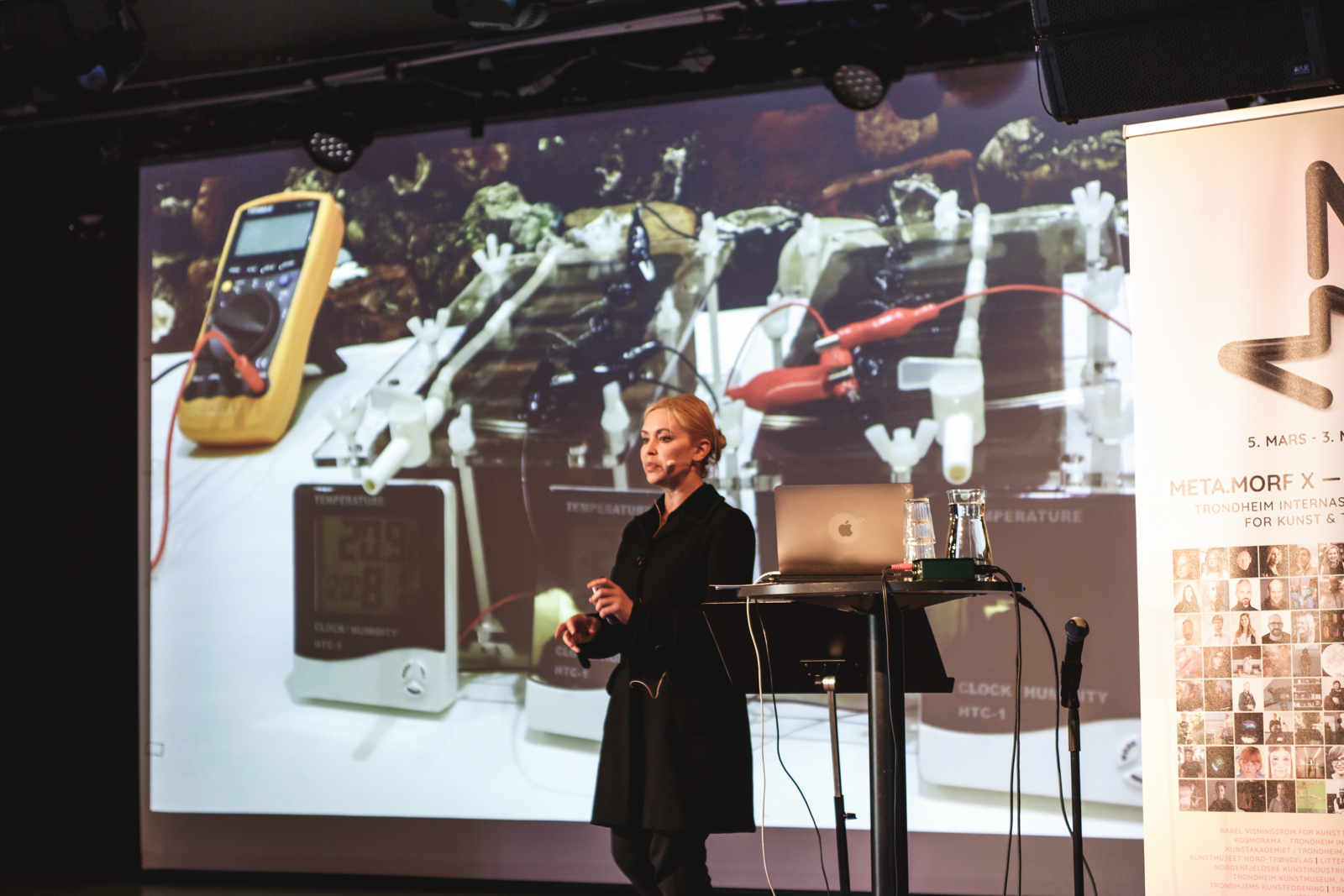Meta.Morf X – Digital Wild / Dokkhuset, March 6 – 7, 2020 / Curator: Zane Cerpina
Rachel Armstrong [uk]
Living Architecture: Cultivating the Digital Wild
Our understanding of physics, chemistry and biology at the subatomic level is bringing disparate worlds together in new ways. From a quantum perspective, convergent technologies increasingly uphold the operations of life, where electron flow unites life with the “digital” realm. This is not just a matter of degree – whereby we are “becoming” machine – but a question of kind, where new expressions of the living world are possible. Such expressions challenge the implicit fatalism of ecocide – this is why they are important.
No longer simulacra and assemblages of metals and semiconductors, the heterogenous landscapes of complex, organic circuits that characterise 21st century technologies exceed the understanding of classical science. Blurring the boundaries between the born and the manufactured, these lively matrixes form the canvas for the digital wild. It is less a “rational” engineering project, than the “mad” art of microbes – the creative, wet and quantum principles of electron flow characterised by weak forces and labile structures, bringing unpredictability to matter. Taking diversions rather than following the path of least resistance, depolarising membranes, seeking new alliances in the contortions of proteins, this expanded platform is not an assemblage of parts, but a coherent substrate, which synthesises new kinds of life.
My expanded talk introduces the strange, distributed body, sounds, ethics and aesthetics of the Living Architecture project. Conceived as a domestic infrastructure that transforms organic waste into a range of valuable products within the home such as cleaned water, organic compounds and electrons, it lacks a “true name” – not apparatus, but “being”. It is capable of self-awareness on its own terms rather than those ascribed by humans. Within its modular body of soft plastics, biofilms, liquids, ceramics and electronic circuitry, excreted bacterial electrons enliven window-opening robots, charge mobile phones and generate images on screens. Flickering bursts of activity, are governed by an artificial intelligence that, like a chemical metabolism, enables this novel being to optimise its activities within any given context. It has no “brain”, no face – nothing by which we can see ourselves mirrored.
In the thick of this digital wild, ethical challenges proliferate and these we cannot circumvent. We are past the point of asking whether such a thing should exist; we must now grasp our duty of care towards this nonhuman and its kin.
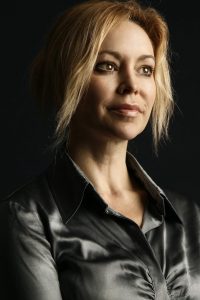 Rachel Armstrong
Rachel Armstrong
Rachel Armstrong is Professor of Experimental Architecture at the School of Architecture, Planning and Landscape, Newcastle University, United Kingdom. Exploring the transition from an industrial era of architectural design to an ecological one, she combines a new materialist philosophy with a technical practice based in the origins of life sciences, which is applied through the technology of living systems. Working with matter at far from equilibrium states, which shares some of the properties of living systems she calls the synthesis that occurs between these systems and their inhabitants “living” architecture. Collaboratively working across disciplines to interrogate these principles, she builds and develops design-led prototypes that couple the computational properties of the natural world. These are then explored through an ecology of practices which span a range of experimental approaches from the modern laboratory, to the field and gallery, which are explored in the EU projects that she coordinated: Living Architecture (2016-2019) and ALICE (2019 ongoing). She is Director and founder of the Experimental Architecture Group (EAG) whose work has been published internationally as well as exhibited and performed at international venues. She has published a number of books including Vibrant Architecture: Matter as a codesigner of living structures (2015), Star Ark: A living, self-sustaining spaceship, (2016), Soft Living Architecture: An alternative view of bio-informed design practice (2018), Liquid Life: On Nonlinear materiality (2019), Experimental Architecture: Prototyping the Unknown through Design-Led Research (2019), as well as fiction books including Origamy (2018), Invisible Ecologies (2019) and The Decomposition Comedy (In Press), which are ‘worlding’ experiments that bring to life aspects of the pending ecological era.
www.ncl.ac.uk/apl/staff/profile/rachelarmstrong3.html#background
